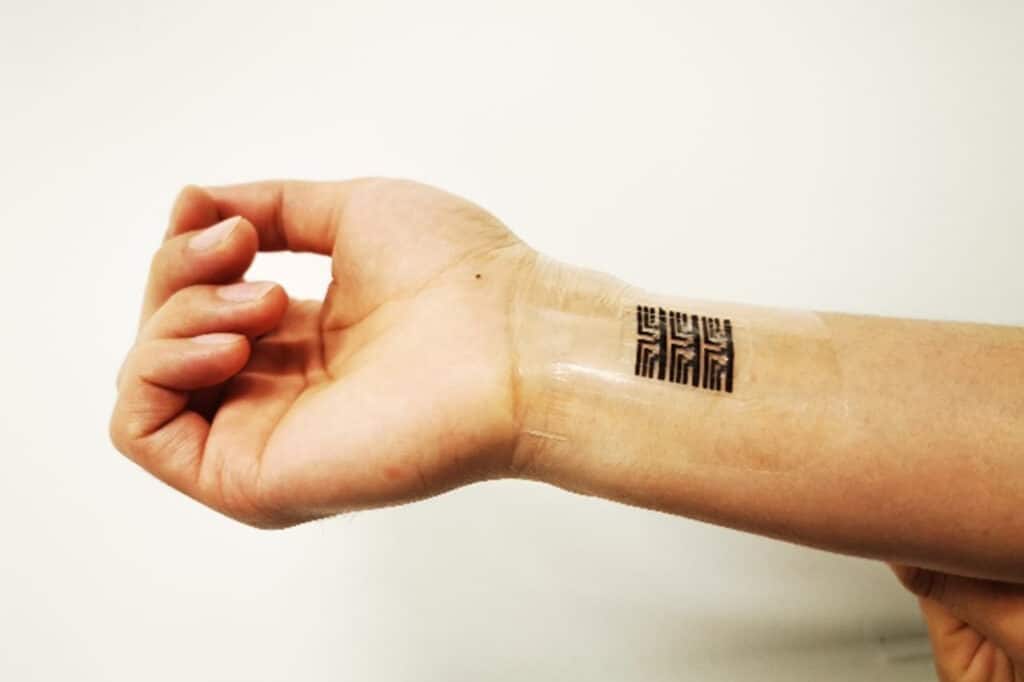In the future, people’s health could be tracked continuously by wearable electronics that can detect the disease even before symptoms appear. Unobtrusive, wearable devices are one step toward making this vision a reality.
Researchers at the University of Chicago’s Pritzker School of Molecular Engineering (PME) have developed a flexible, stretchable computing chip that processes information by mimicking the human brain. The device aims to change the way health data is processed.
The chip could collect data from multiple biosensors and draw conclusions about a person’s health using cutting-edge machine learning approaches. Importantly, the researchers wanted it to be wearable on the body and integrate seamlessly with the skin.
To build their new device, researchers turned to polymers, which can be used to build semiconductors and electromechanical transistors but also have the ability to stretch and bend. They assembled these polymers into a device that allowed the artificial intelligence-based analysis of health data.
Rather than work like a typical computer, the chip – which they call a neuromorphic computing chip – functions more like a human brain, able to both store and analyze data in an integrated way.

“With this work, we’ve bridged wearable technology with artificial intelligence and machine learning to create a powerful device which can analyze health data right on our own bodies,” said Sihong Wang, a materials scientist and Assistant Professor of Molecular Engineering.
To test their new device, researchers used it to analyze electrocardiogram (ECG) data representing the electrical activity of the human heart. They trained it to classify ECGs into five categories – healthy or four types of abnormal signals. They then tested it on new ECGs. Whether or not the chip was stretched or bent, they showed it could accurately classify the heartbeats.
More work is needed to refine the technology, but eventually, it could be used either to send patients or clinicians alerts or to automatically tweak medications. The team is already planning new iterations of the device to both expand the type of devices with which t can integrate and the types of machine learning algorithms it uses.
“Integration of artificial intelligence with wearable electronics is becoming a very active landscape,” said Wang. “This is not finished research; it’s just a starting point.”
Stretchable computing chip analyzes health data by mimicking the human brain
Source: Tambay News

0 Comments